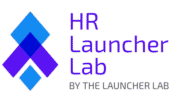Artificial intelligence is no longer a futuristic concept in hiring. In just a few years, résumé screeners, automated interview tools, and predictive assessments have become commonplace in applicant tracking systems. For startups under pressure to move fast, these tools look like an irresistible way to scale hiring without adding recruiters.
Yet beneath the efficiency narrative lies a more complicated truth. AI-driven screening carries serious risks — legal, ethical, and reputational. The very algorithms designed to streamline candidate selection can inadvertently replicate bias, exclude qualified applicants, and expose employers to lawsuits.
The case of Mobley v. Workday is a striking reminder that startups cannot treat AI as a plug-and-play solution. Instead, leaders need to approach candidate screening with both caution and strategy.
(Note: This article is for educational purposes only and should not be considered legal advice. Always consult qualified legal counsel when evaluating compliance obligations.)

The Allure of AI Screening
Startups operate in scarcity mode: limited time, limited staff, and high expectations. Every hiring cycle feels urgent. AI-powered candidate screeners promise to solve three major pain points:
- Speed: Parsing hundreds of résumés in seconds.
- Consistency: Standardizing how applicants are compared.
- Scalability: Handling surges of applications without additional headcount.
On paper, these benefits are irresistible. A founder looking at 500 applications for a single role may be tempted to automate the first cut entirely. Some companies report that automated résumé parsing reduces recruiter time per applicant by over 70%.
But efficiency comes with trade-offs. Without oversight, automation can filter out strong candidates, introduce bias, or create compliance liabilities that outweigh the time saved. For startups, the cost of a misstep is often greater than the cost of doing things manually.
The Risks Beneath the Surface
1. Bias Amplification
AI models learn from past hiring decisions. If historical data reflects human bias — for example, favoring résumés from certain universities or penalizing career gaps — the AI will replicate those patterns.
This risk isn’t hypothetical. Amazon famously scrapped its AI résumé tool after it began penalizing applications containing the word “women’s” (such as “women’s chess club captain”). What began as a neutral filter turned into a biased gatekeeper.
For startups, bias doesn’t just create reputational risk; it can open the door to legal claims.
2. Regulatory Exposure
Governments are tightening scrutiny. Employers can no longer assume “the vendor handles compliance.” Under federal law, the EEOC has clarified that anti-discrimination rules apply equally to algorithmic tools. At the state level, regulations are expanding:
| Jurisdiction | Effective Date | Key Requirements |
|---|---|---|
| NYC Local Law 144 | July 2023 | Bias audits required for automated employment decision tools; candidate notification required. |
| Colorado AI Act | Feb 1, 2026 | Applies to 50+ employees; annual impact assessments; public AI policy disclosures; AG notification within 90 days of algorithmic discrimination. |
| Illinois HB 3773 | Jan 1, 2026 | Employers must notify employees when AI is used in decisions (hiring, promotion, discharge, etc.); prohibits discriminatory AI use. |
This patchwork will grow. Employers must prepare now for compliance obligations that differ by jurisdiction.
Employers should consult legal counsel to interpret these laws for their own workforce. Requirements may vary by company size and industry.
3. Loss of Candidate Trust
Candidates increasingly want transparency. In surveys, a majority of job seekers say they prefer to know whether AI is part of their evaluation. One midsize tech company saw candidate drop-off increase by 20% after applicants discovered rejections were being generated by an AI tool with no human review.
For startups competing for scarce technical or creative talent, trust is as important as compensation. Opaque or unfair-seeming processes can undermine brand equity.
4. Over-Reliance on Automation
AI is good at finding patterns, but poor at evaluating context. An algorithm may dismiss a candidate with a career break for caregiving, even if they have critical skills. A startup hiring for versatility may miss unconventional talent if it leans too heavily on automation.
Human oversight ensures that automation is a support tool, not a decision-maker.
Case Example: The Workday AI Lawsuit
If startups want a glimpse of what can go wrong, they should study Mobley v. Workday, one of the most significant AI hiring cases to date.
The Allegations
First filed in 2023, the lawsuit alleges that Workday’s AI-powered résumé screening and hiring tools discriminated against job applicants on the basis of age, race, and disability. The plaintiffs — applicants over 40, along with individuals from underrepresented racial groups and people with disabilities — claimed they were systematically excluded from jobs before human review.
Legal Status
In May 2025, a federal judge granted preliminary certification of the case as a collective action, allowing it to proceed nationwide. Crucially, the court rejected Workday’s argument that, because it was not the direct employer, it could not be held liable. Instead, the judge found that both the employer using the tool and the vendor providing it can share liability.
Why This Matters for Startups
- Precedent-setting: Courts are signaling that accountability extends beyond the employer to the software vendor.
- Shared liability: Startups cannot rely on contracts alone to shield themselves; they remain responsible for outcomes.
- Vulnerability: For early-stage companies, even one discrimination lawsuit could consume scarce capital and investor trust.
(This analysis is educational. Companies should consult counsel before drawing conclusions about their own liability.)
Responsible Ways to Use AI in Screening
The question isn’t whether startups should use AI, but how. The following practices help balance efficiency with compliance and fairness.
Conduct a Readiness Check
Before enabling AI screeners, evaluate your data hygiene, compliance posture, and governance processes. Many failures stem from skipping this groundwork.
👉 Take our 5-minute AI Readiness Assessment to:
✅ Get a personalized AI Readiness Score (out of 30)
✅ See which stage you’re in — Not Ready, Partially Ready, AI-Ready, or Optimized
✅ Unlock a downloadable guide tailored to your results with next steps and tools
Set Clear Guardrails
- Use AI as an assistive filter, not the final decision-maker.
- Require recruiters or hiring managers to review AI shortlists.
- Document how AI is used and review policies quarterly.
Audit for Bias Regularly
- Ask vendors for independent bias audits.
- Review system outputs across demographics every quarter.
- Work with legal or compliance advisors to interpret findings.
Balance Efficiency with Candidate Experience
- Disclose when AI is used.
- Offer candidates the option for human review.
- Maintain human touchpoints to reinforce fairness and transparency.
These are best practices, not legal requirements. For specific obligations, employers should seek legal guidance.
What’s Next for Employers
The developments in Colorado and Illinois, combined with the Workday lawsuit, signal that AI in employment is moving out of the experimentation phase and into the accountability era.
Practical Steps Now
- Conduct an AI system audit: Identify any tools in use and evaluate them for bias.
- Develop an internal AI policy: Outline governance, ownership, and employee disclosures.
- Review vendor contracts: Ensure they specify audit processes, data transparency, and shared liability.
- Plan for disclosure: Prepare template communications to candidates and employees explaining AI use.
Startups still have time — Colorado’s and Illinois’s laws do not take effect until 2026 — but early preparation reduces risk and signals to candidates and investors that the company takes responsible innovation seriously.
Employers should draft these policies with input from counsel to ensure compliance across multiple jurisdictions.
The Strategic Lens for Startup Leaders
Startups thrive by moving fast, but in hiring, speed without strategy can be costly. The lessons are clear:
- AI is not turnkey. Implementation requires governance, audits, and transparency.
- The cost of mistakes is disproportionate. A single discrimination claim can derail growth.
- Responsible adoption is a differentiator. Startups that use AI responsibly will outcompete those that cut corners.
The Workday lawsuit and state laws underscore that technology cannot be separated from accountability. For founders and HR leaders, this is not just about tools — it’s about leadership.
Ready to Assess Your Own Hiring Readiness?
Before plugging AI into your hiring stack, step back and ask: are we ready? Do we have the data quality, compliance processes, and governance needed to use these tools responsibly?
FAQs
Q: Is it legal to use AI to screen candidates?
A: Generally yes, but liability remains with the employer under federal law. States like New York, Colorado, and Illinois add further obligations. Legal counsel should be consulted before adopting these tools.
Q: Can startups shift responsibility to vendors?
A: No. Courts, including Mobley v. Workday, have shown that both employers and vendors can be liable. Vendor contracts should be reviewed with counsel to clarify responsibilities.
Q: How can startups reduce bias in AI hiring tools?
A: Choose vendors with transparent audits, regularly review outcomes, and ensure humans make final hiring decisions. Employers should confirm with counsel whether these steps meet jurisdictional requirements.
Q: Should candidates be notified when AI is used?
A: Yes. Transparency builds trust and, in some jurisdictions, is mandatory. Legal advisors can help draft compliant notices.
Q: What’s the first step before adopting AI in hiring?
A: Conduct a readiness assessment of your data, compliance, and governance practices. Review results with your legal and HR advisors to set a safe foundation.
Disclaimer
The information on this site is meant for general informational purposes only and should not be considered legal advice. Employment laws and requirements differ by location and industry, so it’s essential to consult a licensed attorney to ensure your business complies with relevant regulations. No visitor should take or avoid action based solely on the content provided here. Always seek legal advice specific to your situation. While we strive to keep our information up to date, we make no guarantees about its accuracy or completeness.
This content may contain affiliate links, meaning we receive a commission if you decide to make a purchase through our links, at no cost to you.
For more details, refer to our Terms and Conditions.
